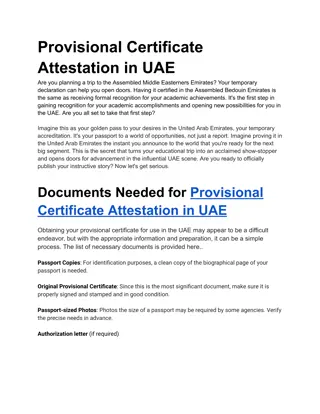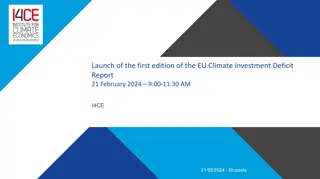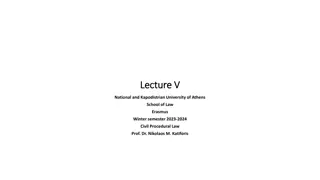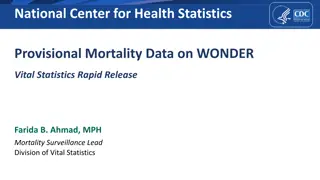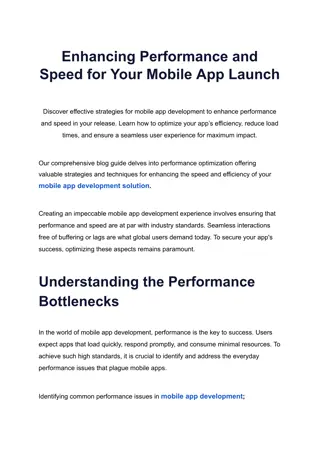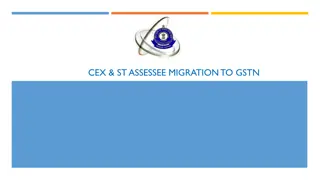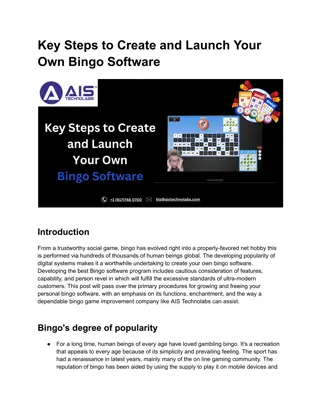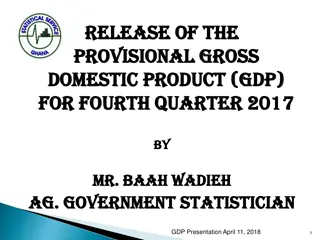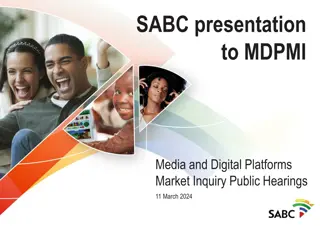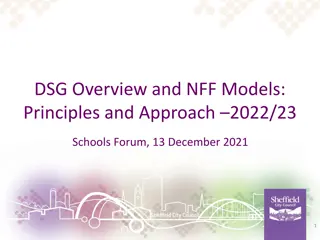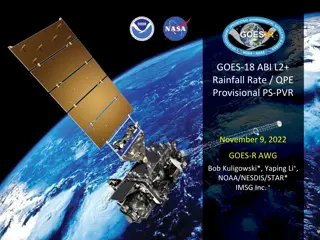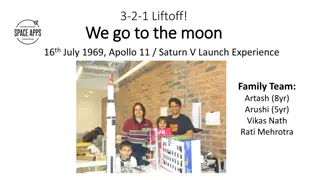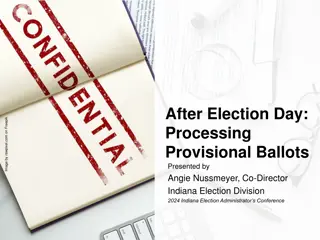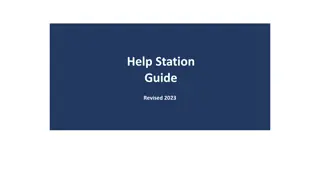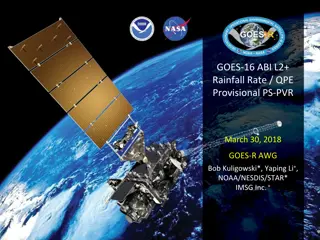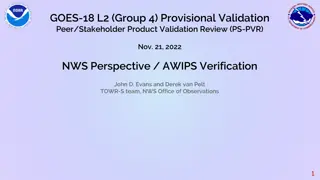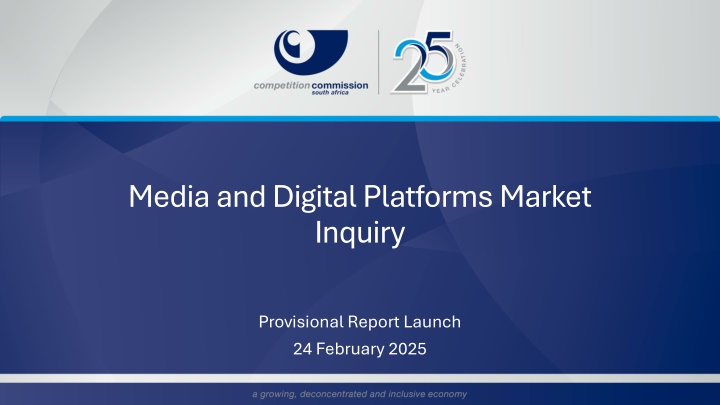
Insights into Media and Digital Platforms Market Inquiry Findings
Explore the provisional report on the Media and Digital Platforms Market Inquiry, focusing on the impact of digital platforms, AI, and social media on the news media sector. Delve into the implications for media sustainability, freedom of expression, and competition laws. Discover the challenges faced by traditional news media in an era of online news consumption and declining revenue, exacerbated by AI technologies and digital advertising trends.
Download Presentation

Please find below an Image/Link to download the presentation.
The content on the website is provided AS IS for your information and personal use only. It may not be sold, licensed, or shared on other websites without obtaining consent from the author. If you encounter any issues during the download, it is possible that the publisher has removed the file from their server.
You are allowed to download the files provided on this website for personal or commercial use, subject to the condition that they are used lawfully. All files are the property of their respective owners.
The content on the website is provided AS IS for your information and personal use only. It may not be sold, licensed, or shared on other websites without obtaining consent from the author.
E N D
Presentation Transcript
Media and Digital Platforms Market Inquiry Provisional Report Launch 24 February 2025
Scope and Background - MDPMI The Competition Commission launched the Media and Digital Platforms Market Inquiry following severe financial strain in the media sector due to digitalisation of news consumption. The Inquiry determined whether this shift and conduct by search and social media platforms that compete for digital advertising and play an intermediary role may be exacerbating the difficulties faced by the news media. The Inquiry examined: o The role of search and social media platforms in digital advertising and news distribution. o The impact of AI Chatbots and AI-powered search on news media. o The AdTech industry and its effect on monetization for news publishers
The Constitutional & Competitive Implications The media plays a crucial role in upholding the Constitutional Right to Freedom of Expression. Digital platforms do not create content but profit from news, potentially harming media sustainability. Section 39(2) of the Constitution requires competition law to promote the Bill of Rights, prioritizing a strong, independent media. This Inquiry also considered the role of the public broadcaster in media diversity and plurality.
The Inquiry Process 02 04 03 01 Stakeholders and the public have 6 weeks to respond to the Provisional Report, with a final report expected in 4-5 months. - Followed by in-camera hearings, including TikTok & X Public Hearings that incl. - Mainstream, vernacular, community media - Radio & TV broadcasters (commercial and public) - Global search & Social Media Platforms - AdTech Companies, brokers, Think Tanks & Academics The Inquiry conducted two rounds of stakeholder information requests - Further information requests followed the in- camera hearings before drafting of the Provisional Report.
The News Media Sector The Shift to Online News The Shift to Online News Consumption Consumption The news media plays a crucial role in upholding freedom of expression and democracy. 87% of South Africans get their news online, mostly via mobile phones. However, it faces financial challenges due to a decline in traditional advertising revenue. The Inquiry explored the impact of digital platforms, AI, and social media on news media and proposes possible solutions Social media and search engines have become primary news sources. News videos are preferred by young demographics over text, mostly consumed on social platforms. Traditional ad revenue for print media declined by 40%; SABC ad revenue dropped by 47%.
Declining Revenue & Impact on AI on Journalism Digital ad revenue cannot fully compensate for losses. Shrinking newsrooms: Journalism jobs have halved. o Increased casualization of journalists. o Many community and regional newspapers have shut down. o AI Chatbots pose a new threat to news media by reducing referral traffic and capturing content value on their platforms. Digital platforms increase costs for news media by demanding platform-specific content formats, constant algorithm optimisation, and misinformation management. Many news organisations have turned to non-advertising revenue (subscriptions, donations, content licensing, and events), but subscriptions are not viable for most South Africans, limiting access to news. The advertising revenue decline threatens media diversity and plurality, further concentrating power among a few large media companies.
The Role of Search Engines News content is valuable for search engines, for driving user engagement News is a key driver for search engines and is widely used to power personalized feeds and queryless search features like Google Discover. Most users consume news directly on search engine results pages (SERPs) or via YouTube, leading to less than half of news queries generating clicks to news websites, which reduces revenue for news media. Google benefits far more than news media: Bias in Google s algorithm disadvantages SA media, favouring foreign news sources and YouTube-hosted videos. ~200m in 2023 Referral traffic to news websites R300m R400m annually ~800- 900m Google s estimated benefit from news content Estimated imbalances in value
The Role of Social Media However, Meta and X have deprioritized posts with links, reducing referral traffic. News organizations struggle to monetize views on YouTube. Social media algorithms amplify misinformation. The evidence before the Inquiry is unequivocal that a majority of SA consumers use social media as their primary source of news. Platforms like YouTube, Meta, X, and TikTok drive news consumption.
The Rise of Generative AI & Its Impact Survey evidence confirms rising chatbot news consumption, with many users relying on AI-generated news summaries. SA media content has been used in AI training, though historically in small amounts but its importance is expected to grow AI chatbots provide news summaries, reducing website traffic. AI tools use news content for training without proper compensation. AI summaries reduce referral traffic to news sites, harming media outlets not included in content deals. AI Chatbots are increasingly used for news, functioning similarly to search engines. Most SA media have not blocked AI crawlers due to the opt-out system, lack of awareness, and reliance on Google and Microsoft search traffic, which they cannot afford to lose
Challenges in AdTech & Monetization AdTech is used by the media to monetise digital traffic to their websites and advertisers to place ads across digital content. Evidence indicates that Google is super-dominant across AdTech, achieved through acquisitions and entrenchment practices that favour its AdTech partners over rivals. programmatic ad sales Google Ad Exchange pre-access to top bids5-10% fee DV360 and Google Adsexclusive accessdata- sharingnews media receive little data. Google Ad Manager, Admob, or Adsense Google Ads and DV360. News media receive only 60% of programmatic ad spend after AdTech and agency fees, while direct sales have dropped to 40-60%. AdTech holds a data advantage, and local language advertising (except for English and Afrikaans) is not supported on Google AdTech.
Remedial Actions The Inquiry s provisional remedies aim to address media challenges While media bargaining has been attempted globally, it has faced issues Meta blocked news, and Google payments favoured mainstream media. The Inquiry seeks sustainable, win-win solutions but may impose a 5-10% digital levy on search, social media, and AI companies if no agreement is reached. Platform Key Remedies Search Restore Referral Traffic: Adjust search algorithms to support SA news media and reduce bias toward foreign platforms. Support Monetization: Share anonymized user data and provide SEO assistance. Compensation: Google should pay R300-500m over 3-5 years to address lost revenue, benefiting diverse media. AI & Search: Allow media to opt out of AI summaries without losing search traffic. Collective Negotiation: Enable media to negotiate agreements on funding and policies Social Media Boost Referral Traffic: Meta & X should restore SA news visibility. Increase Revenue: YouTube & Meta should expand and improve revenue-sharing. Fight Misinformation: Platforms should be held accountable and fund fact-checking. Support Media: Share data, fund oversight, and promote digital literacy.
Remedial Actions Platform Key Remedies Gen AI Media Negotiation: Allow news media to collectively negotiate AI deals to secure fair compensation. Opt-Out Option: AI companies should enable media to opt out of AI summaries without losing search visibility. Fair AI Representation: Ensure AI chatbots don t favour global media partners over SA media and maintain referral traffic. AdTech Global Reforms Should Apply to SA: If Google is broken up in the US & EU, the same should happen in SA. AdTech Transparency: Apply EU competition remedies in SA, including price transparency for Google Ad Exchange. Fairer Fees & Access: End extra fees on 3rd-party Ad Exchanges, lower direct sales fees, and stop YouTube ad exclusivity. Local Language Support: Ensure Google AdTech supports all SA languages for advertising.
Remedial Actions Stakeholder Government & Business Key Remedies Government & Business Support: Proposed measures include tax breaks and committed ad spending to sustain independent media. Community Media Exemption: Allow collective national ad sales to boost revenue. Industry Fund: Establish a donation-based fund to support media organizations.

